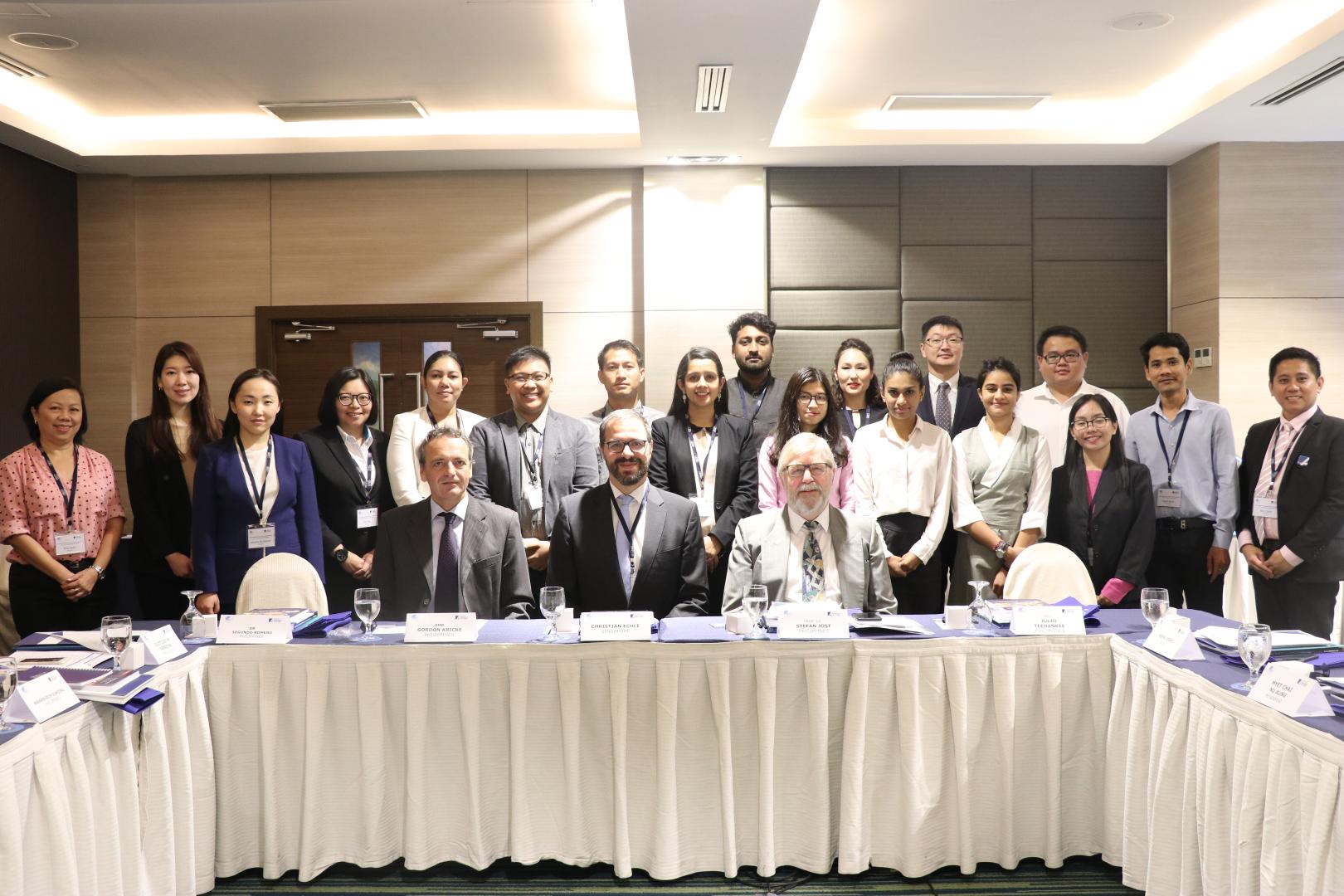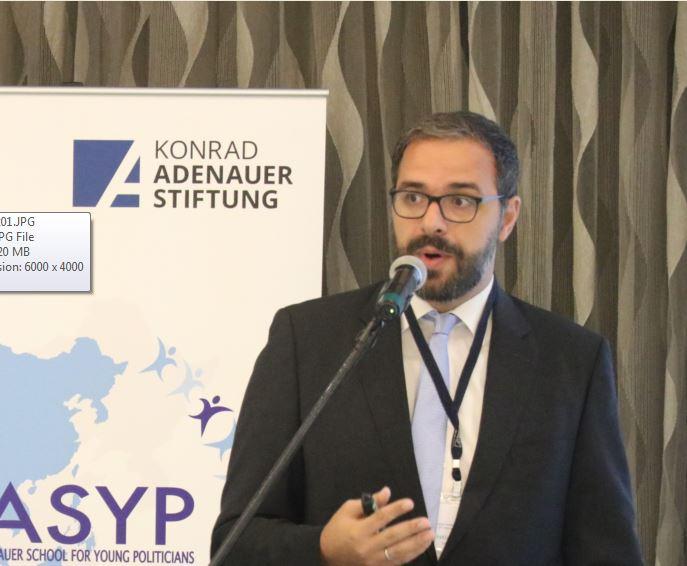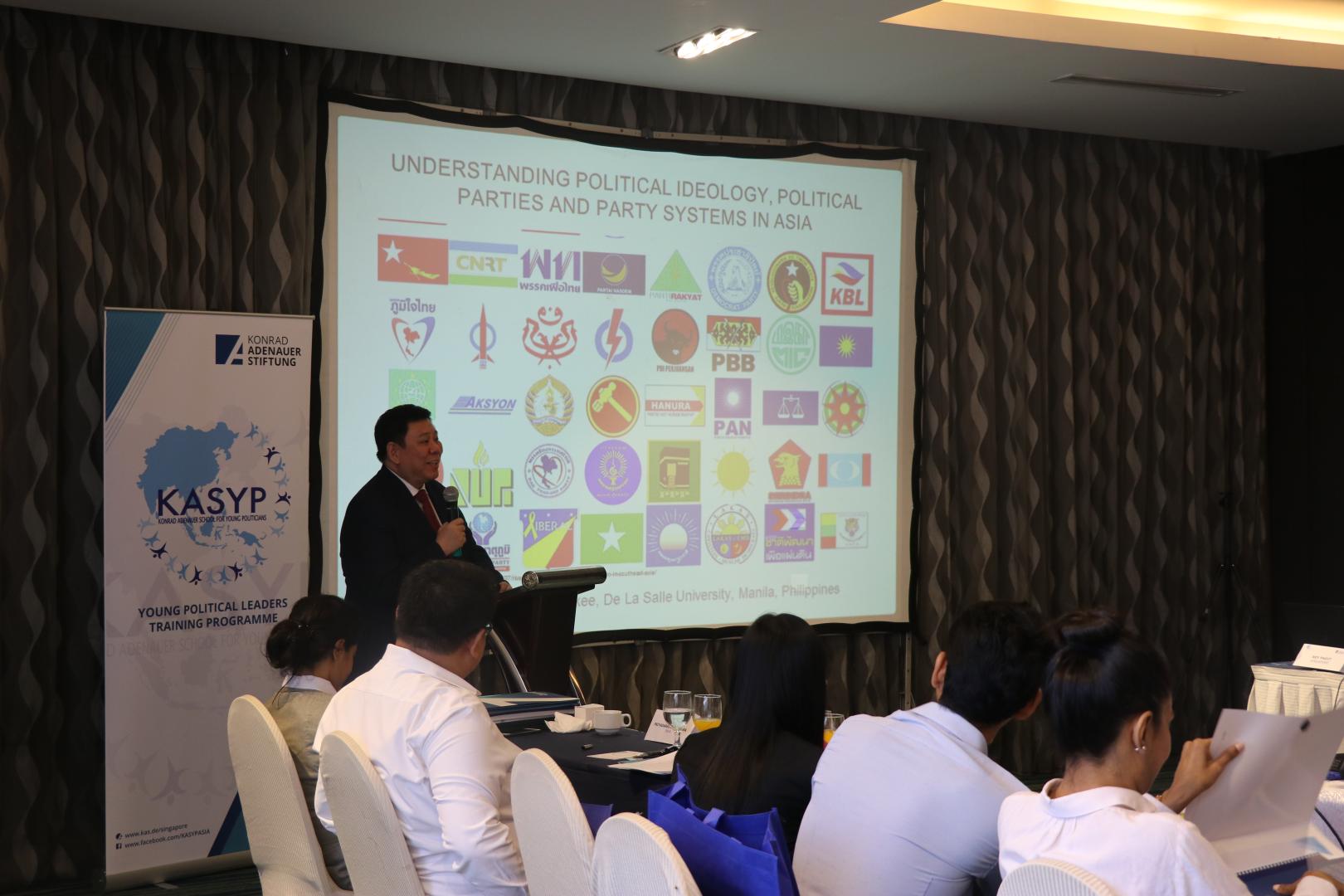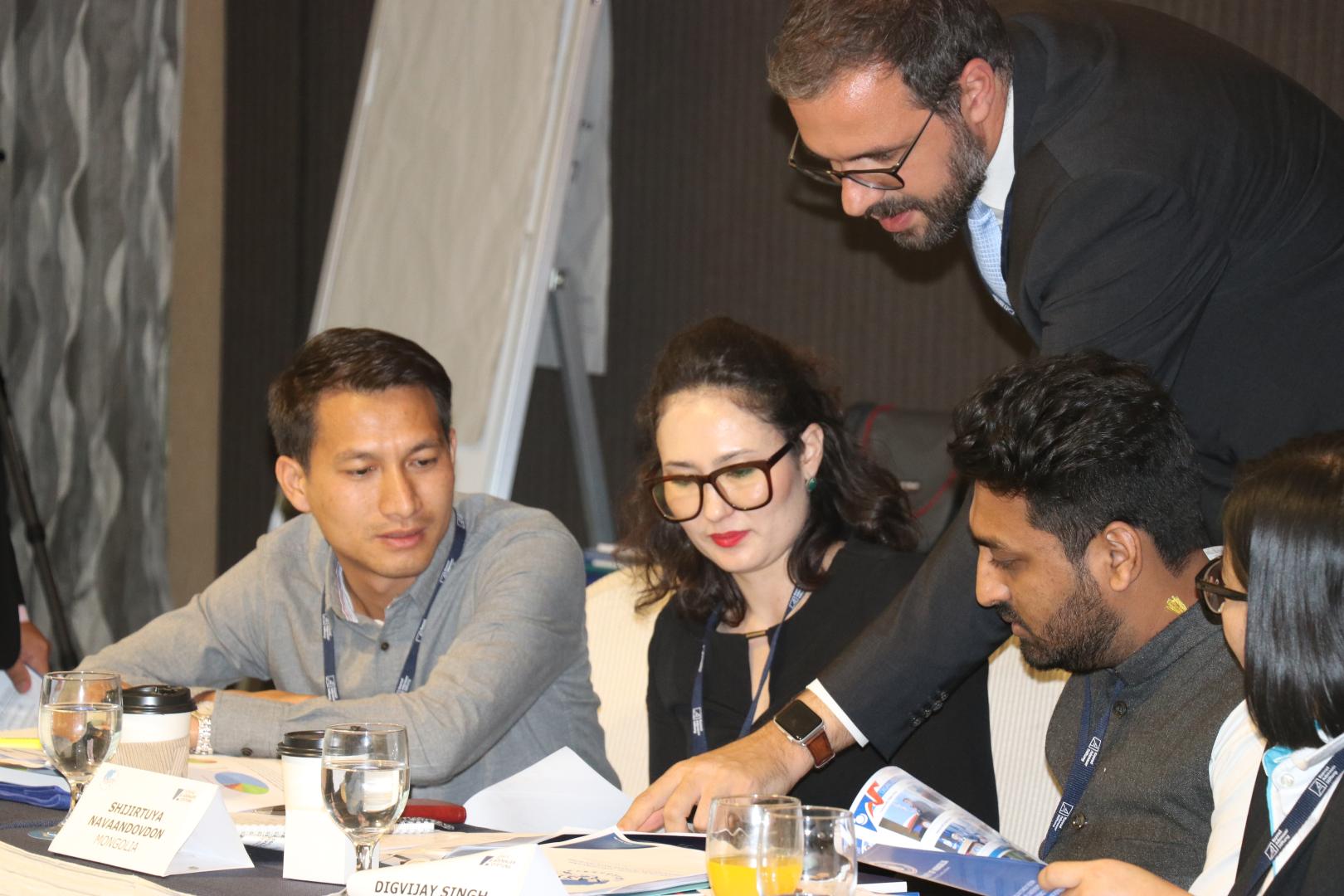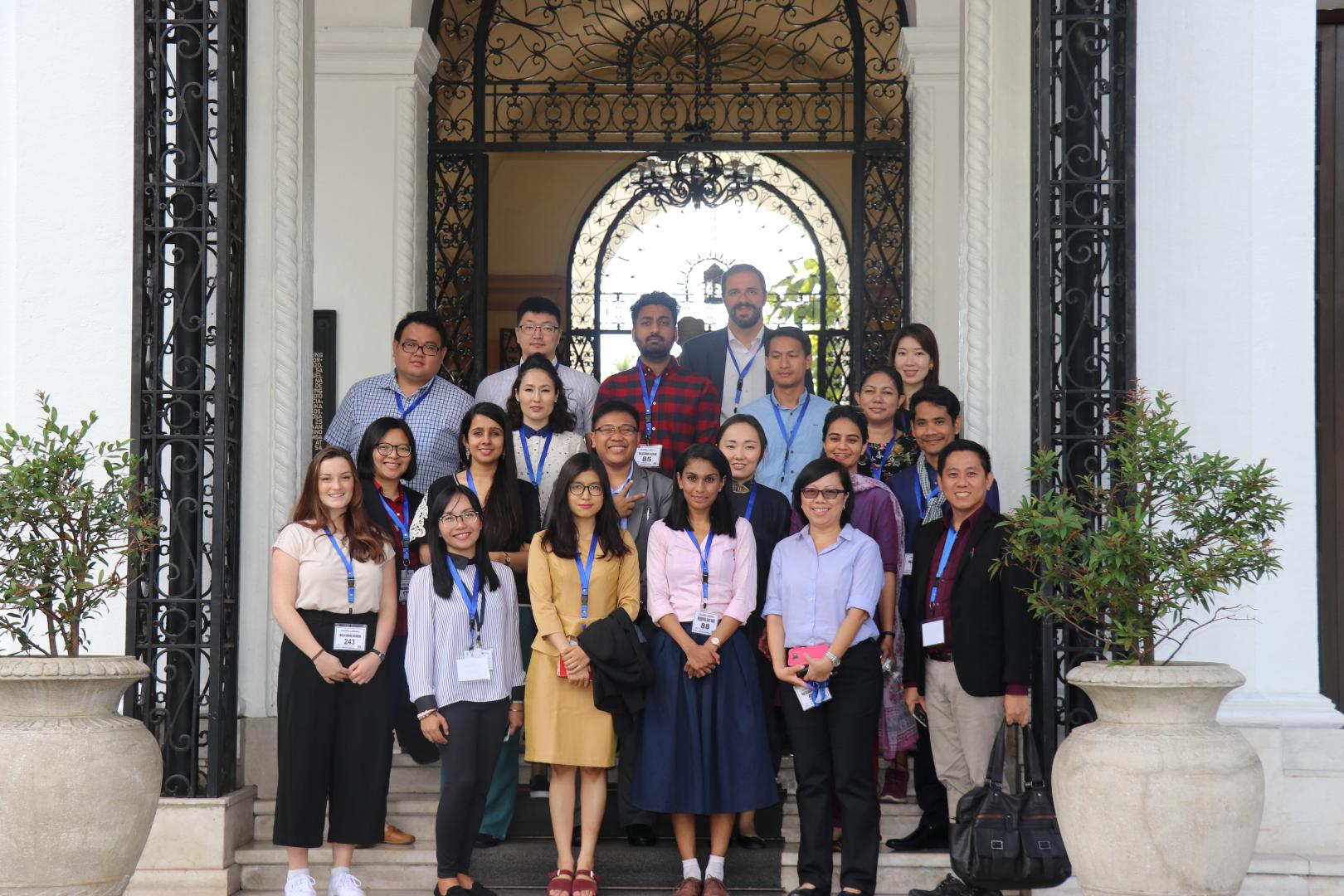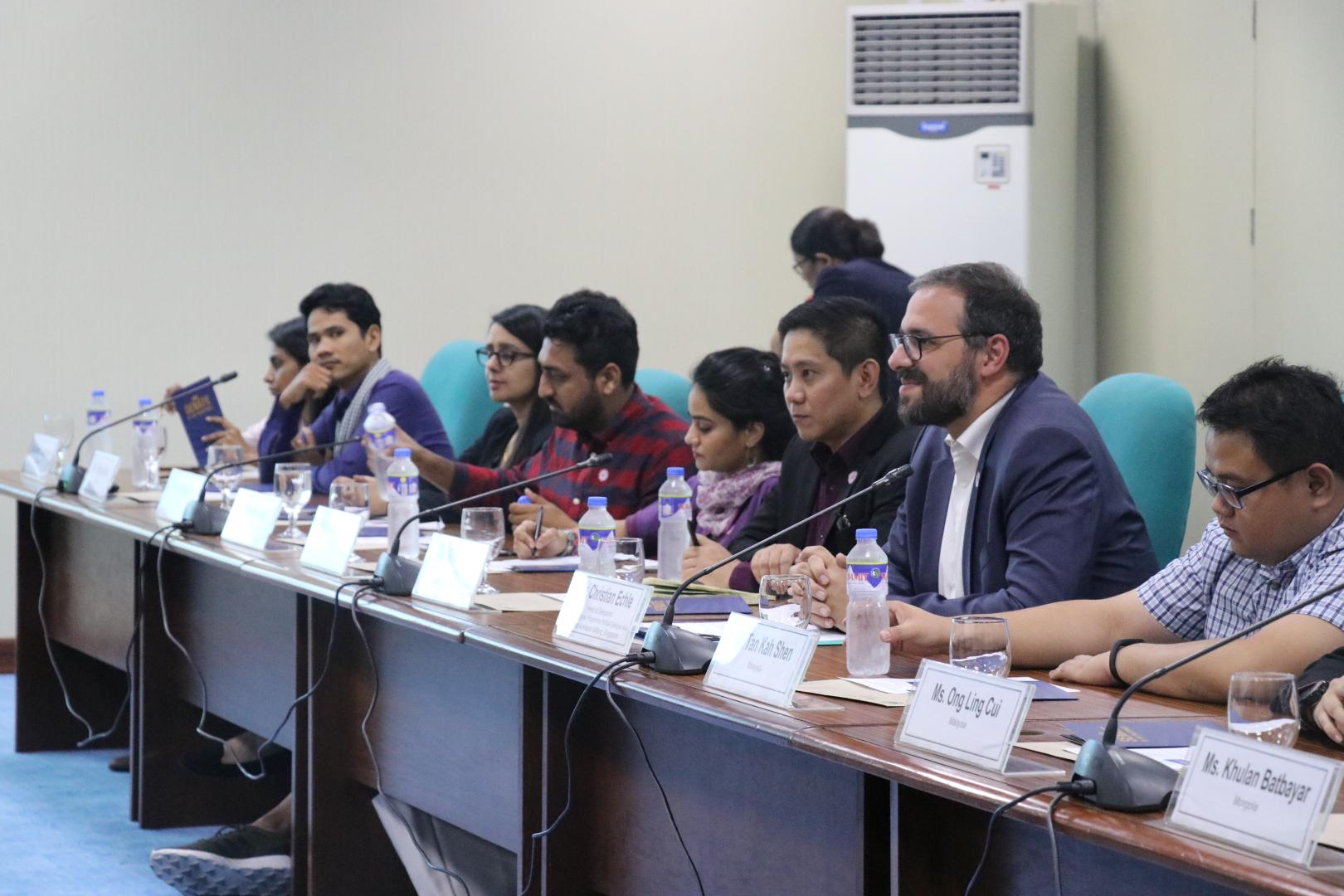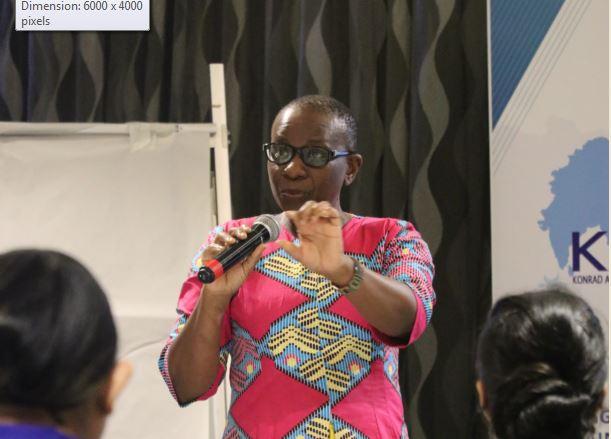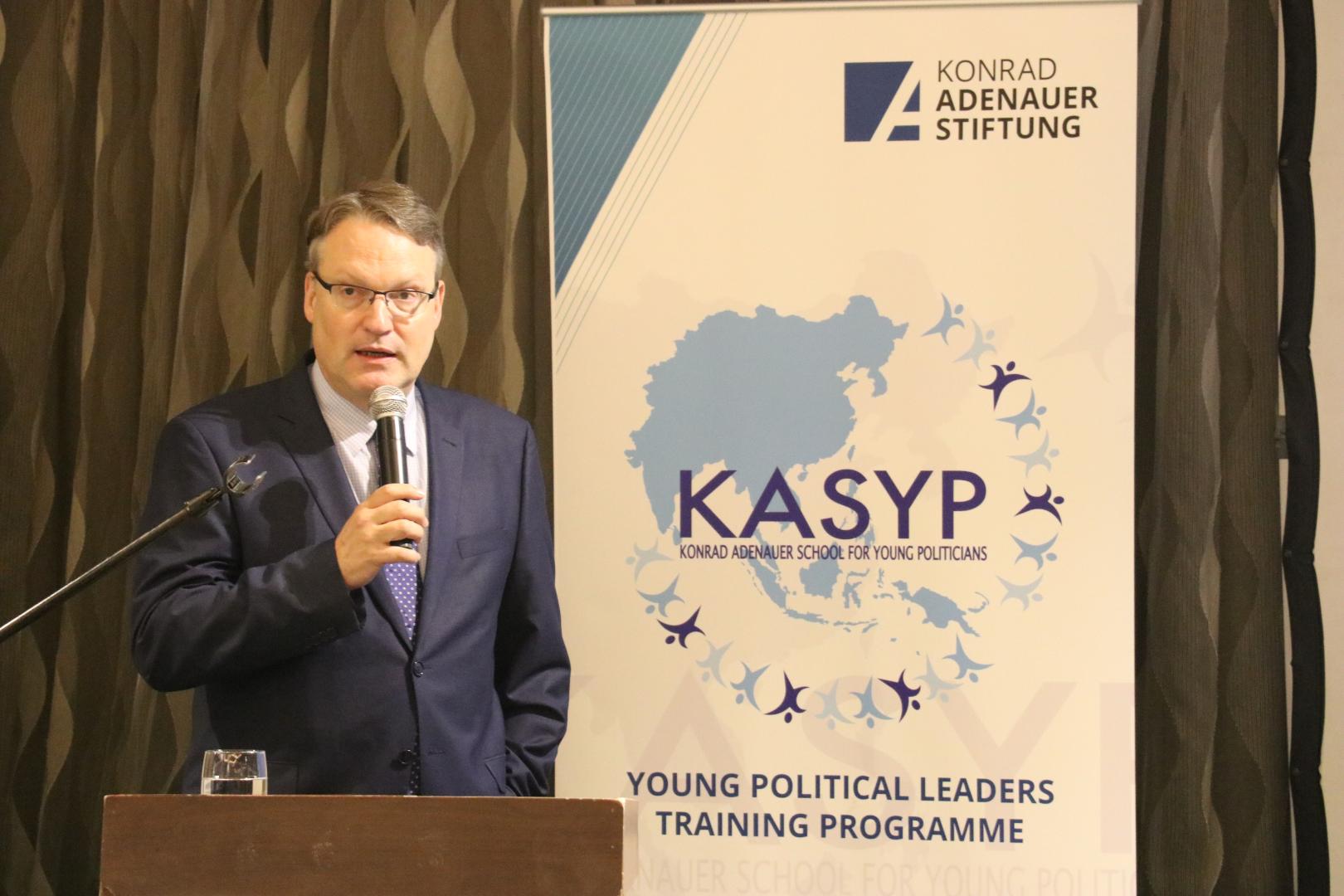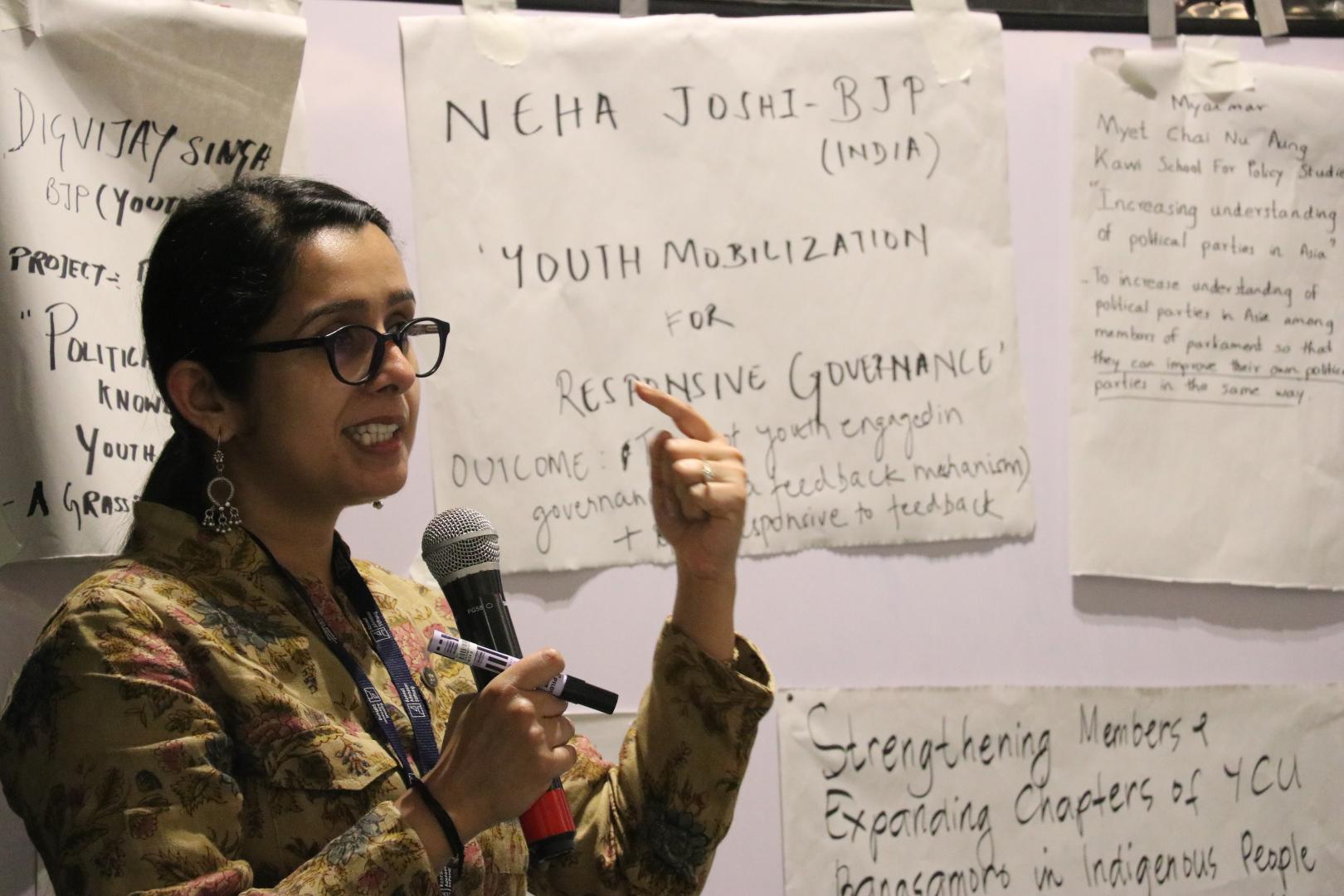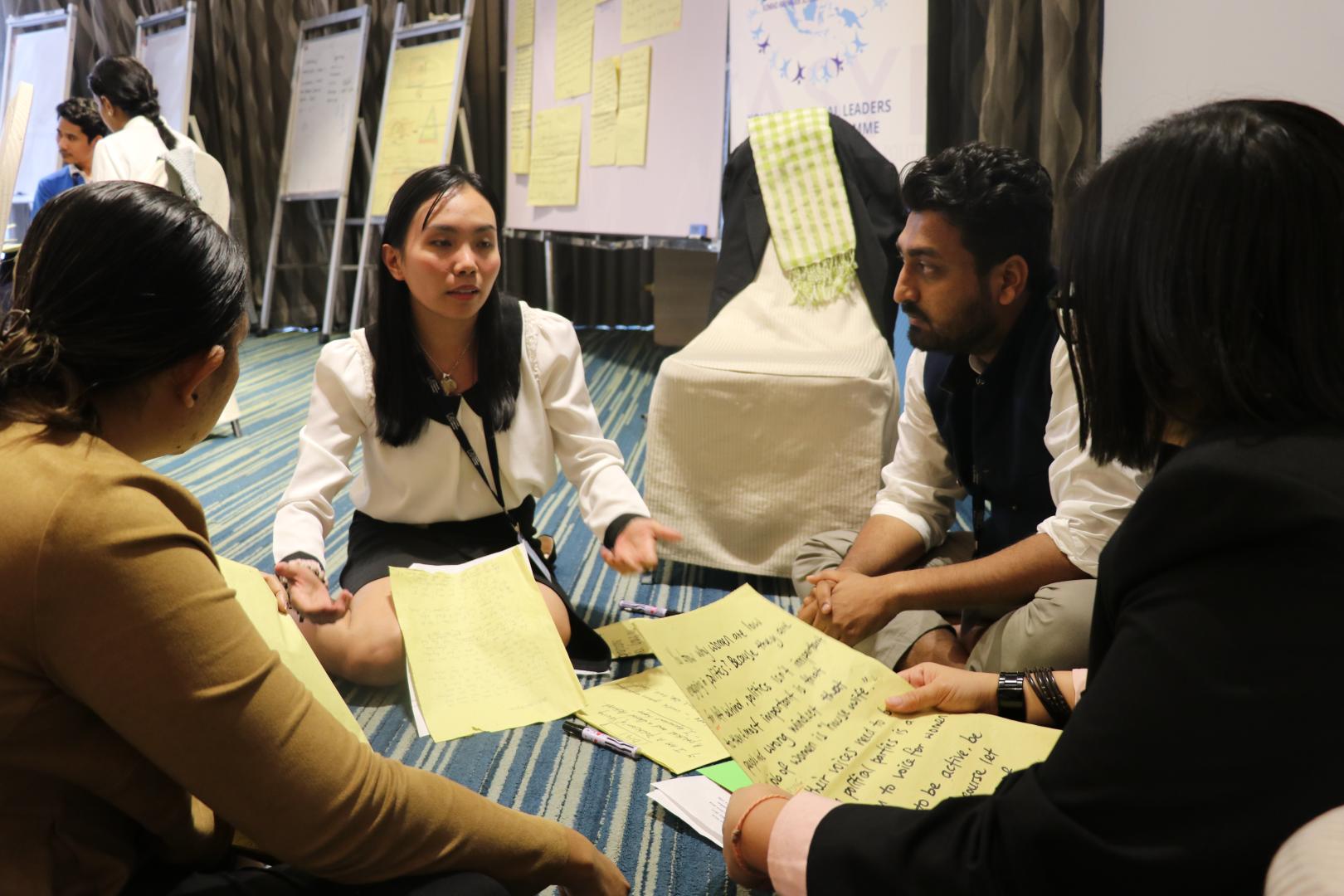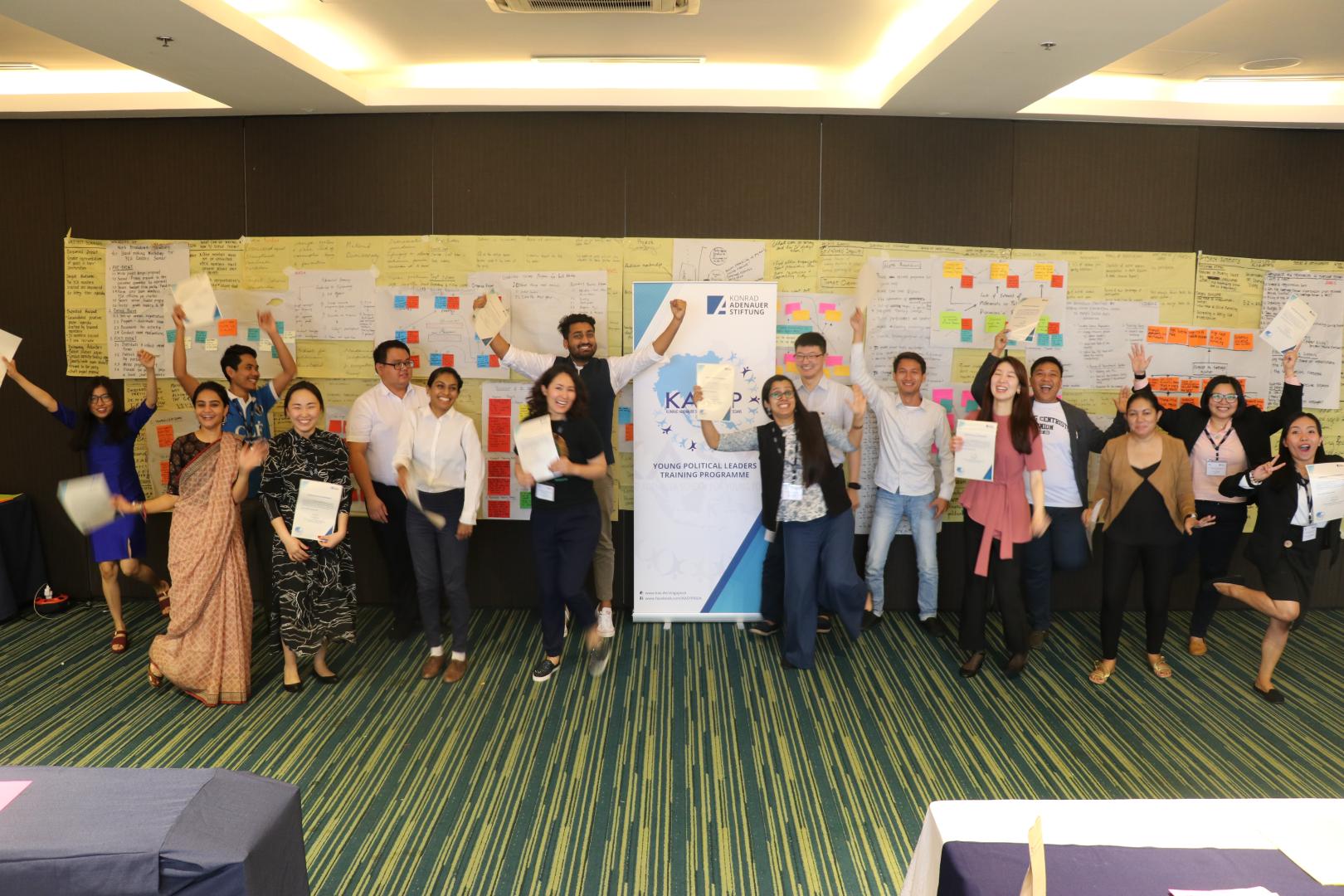KASYP is a first of its kind capacity-building training championed by the Konrad-Adenauer-Stiftung to enable future leaders to be better strategic thinkers and to strengthen political parties in the region. The program covers four workshops over the course of two years and aims at forming young political leaders who advance transparency and accountability, democratic governance, and democracy in their respective political parties.
The event officially began with welcome remarks from Mr. Christian Echle, Director of the Regional Programme Political Dialogue Asia, Konrad Adenauer Stiftung, Professor Doctor Stefan Jost, Country Representative of the Konrad Adenauer Stiftung in the Philippines and Ambassador Doctor Gordon Kricke, German Ambassador to the Philippines, on Monday morning. The first KASYP module consisted of a training workshop in project design and management, conducted by our in-house KASYP trainer, Dr. Segundo Romero. Participants were introduced to core tools for effective project conceptualization, planning and implementation, which they then applied to their own projects that they will undertake in the upcoming months before their second training program in August. The topics included the Threats, Opportunities, Weakneses, and Strengths (TOWS) analysis, political party strategy mapping, problem tree analysis, and logical framework analysis.
Additionally, the participants benefitted from a workshop by Ms. Lim, Project Director and Consultant, on public speaking and presentation to equip them with the ability to present their projects to the party and community.
The workshops was accompanied by a number of interesting talks by renowned experts in the field. One of them was Professor Julio Teehankee, Professor of Political Science and International Studies from La Salle University, who encouraged the participants to critically question their respective parties with regards to internal democracy, background, transparency and composition of its members, also giving examples for the best practice of these ideals. Ms. Rumbidzai Kandawasvika-Nhundu, Head of the Global Political Representation and Participation Programme from the International Institute for Democracy and Electoral Assistance (IDEA), also left a very good impression through her talk on the changing nature of political parties and representation, explaining that democracy and party systems are under threat and suggesting necessary adjustments to be made by the parties in order to be resilient. This lead to an intense discussion about the difference between participation and representation of women and youth in political parties and its effects on democracy building worldwide. Very interesting input came from Professor Mark Thompson, Head of Politics at the Department of Asian and International Studies, City University of Hong Kong. He gave a presentation on the inter-relationship of dynasties, democracy and development, giving insights into the political landscape of different Asian states. The presentation left the participants to reflect on how they perceive dynasties in their own political parties and how they can ensure equal opportunity for participation and representation of the public.
The highlight of the program was the field trip on Wednesday, when the group visited Malacanan Palace, the official seat of the Philippine President. The participants had an extensive briefing on the history of the country, particularly on the Philippine presidency. This was followed by a lunch discussion with members of the Cabinet Secretary’s Office and the Presidential Legislative Liaison Office where the participants had the opportunity to share and learn about the challenges being faced by young political leaders in government service The afternoon was reserved for a visit of the Senate of the Philippines, where participants were given a briefing on the Legislative Process and the role of the Senate in the Philippine government. The group even had a chance to witness a committee hearing and meet Senator Win Gatchalian to discuss an initiative of the implementation of mandatory military training for young Filipinos. The program provided the participants with a deeper understanding of the Philippines political system which they could compare to the system in their own respective countries.
We are looking forward to the next workshop in August and are keen to hear more about the interesting projects to be implemented by our participants in the course of the program.



